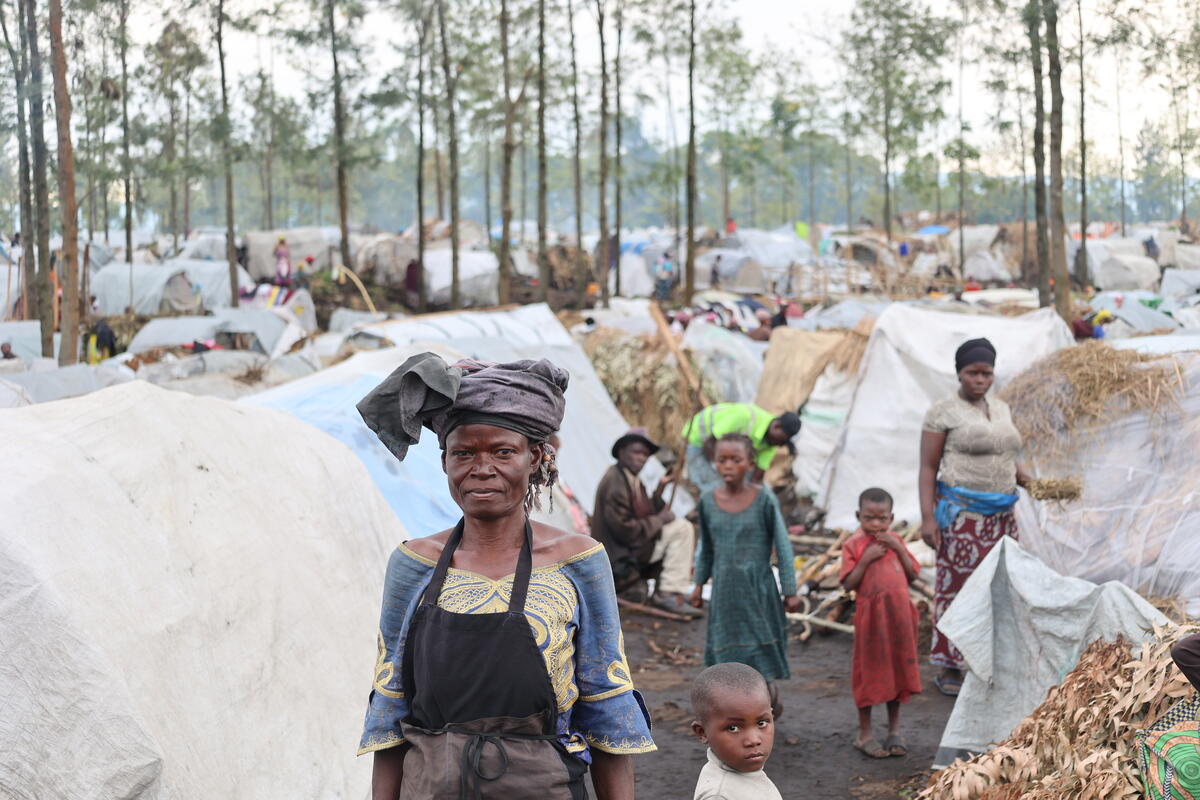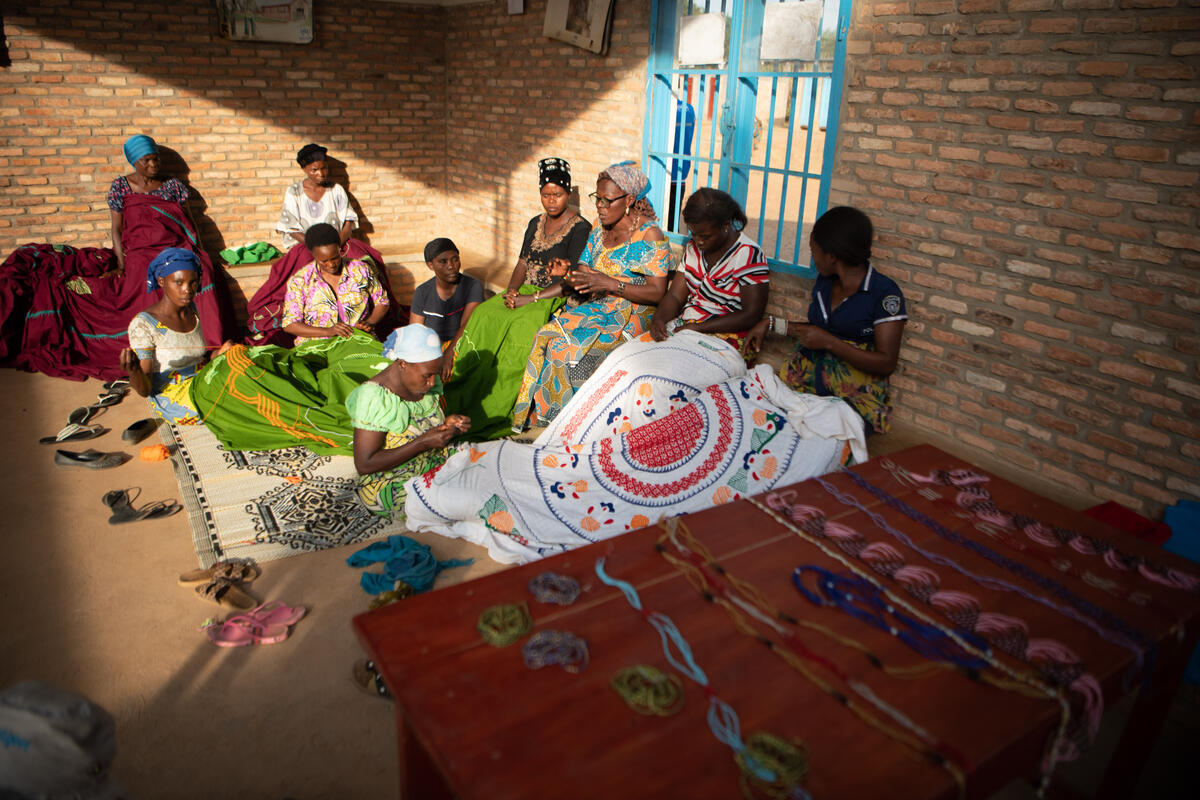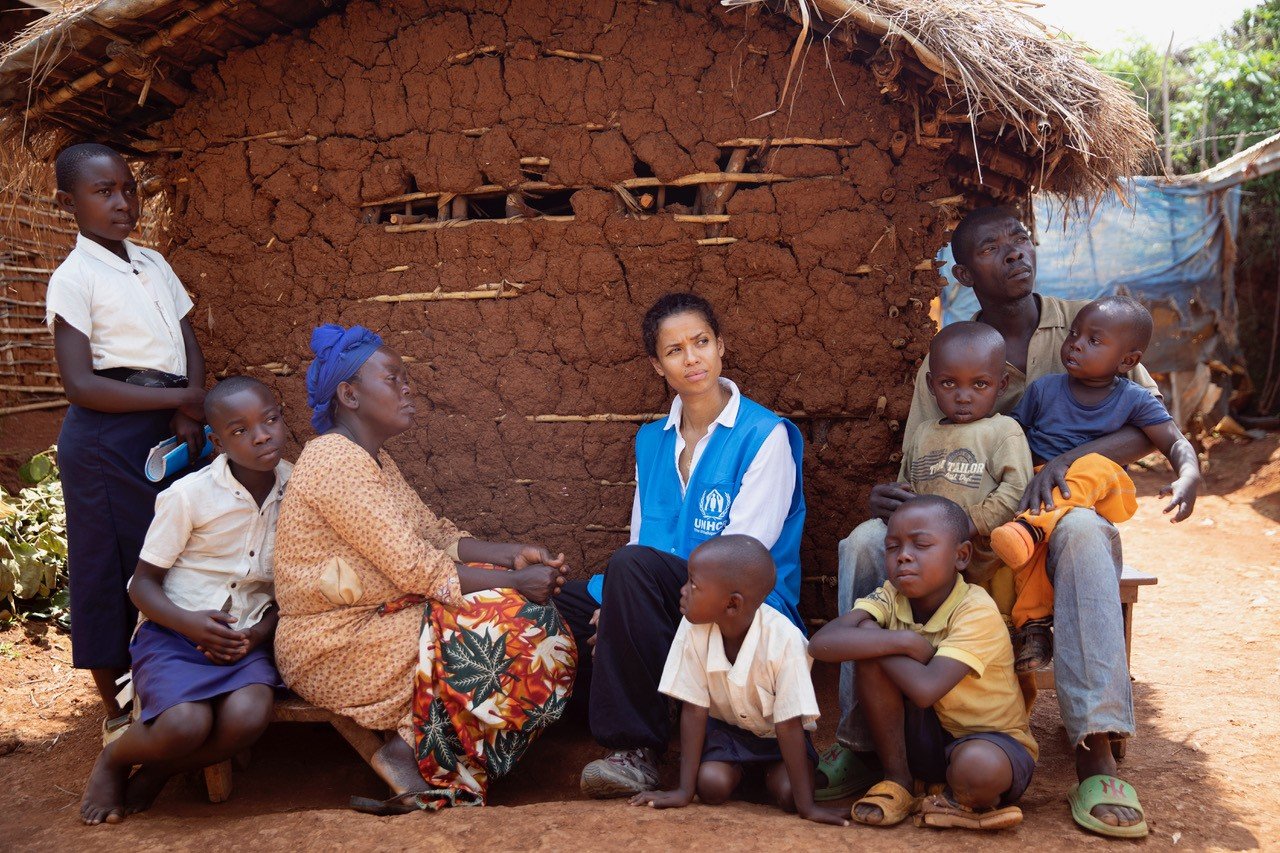Congolese refugees brave rough roads, river on way home to Equateur province
Congolese refugees brave rough roads, river on way home to Equateur province

BATANGA, Democratic Republic of the Congo, April 28 (UNHCR) - A first group of refugees have gone home from the Republic of Congo (ROC) to the Democratic Republic of the Congo (DRC) in what has been called "one of the most logistically challenging major refugee voluntary repatriation programmes" ever launched by the UN refugee agency.
A total of 109 Congolese refugees left Betou in north-eastern ROC yesterday and headed home to Batanga in north-western DRC's Equateur province, travelling through dense forests on extremely rough roads, and finally crossing a broad stream by ferry.
Despite detailed planning, a tropical rainstorm pouring down on the region the previous night had brought the unexpected. "Trees had fallen on the road north of Betou," said Geoffrey Wordley, UNHCR's operations coordinator in Equateur province. "We first had to clear the road, virtually by hand with axes and other tools, before we could continue to the port."
The returnees were travelling on trucks, transiting through the Central African Republic before completing their journey to the DRC's Batanga port by ferry.
"We have wanted so much to return to our country. Now I need to construct a place to stay for my family," an overjoyed father told DRC Interior Minister Theophile Mbemba upon arrival at the Batanga transit centre. His eyes were wide open with positive surprise that the minister would personally come to the remote Equateur province to welcome him.
"In Congo-Brazzaville (ROC), we could freely plant and hunt," said the returnee, noting that conditions in exile allowed for a decent living. "Still, it is better to be in your own place."
At the transit centre, the returnees underwent immigration procedures and screening for medical and social assistance needs, and received relief items like food, plastic sheeting, kitchen sets, mosquito nets and shelter construction tools. They were transported to their areas of origin on Thursday.
"We will not abandon you during the reintegration in your home areas in Equateur province," UNHCR's Africa bureau deputy director Zobida Hassim-Ashagrie assured the returnees. She had joined them on the entire journey home.
Once they are back in their villages, UNHCR will monitor their well-being, and provides initial reintegration assistance in the areas of shelter, health, education and income generation through projects already underway in cooperation with our implementing partners AHA, AIDES, GTZ, Memisa and CDI Bwamanda.
Yesterday's convoy marked the end of five years of exile for the Congolese refugees. In the ROC, they had lived in remote sites along the Oubangui river, most of which were only accessible by boat. In a few weeks, the rainy season will have increased the river's water level, and a large part of the return movement will take place on the river. UNHCR has bought 25 locally-built boats for this purpose.

Equateur province is the only area in the DRC where UNHCR is currently facilitating repatriation, as the area has been relatively calm over the past two years. UNHCR has already helped some 2,000 refugees return to Equateur from the Central African Republic since October 2004.
In the ROC, some 8,000 Congolese refugees have already signed up for repatriation. UNHCR plans to help as many as 24,000 out of the total 57,000 in the ROC to return this year. The repatriation programme will run until 2007.
The UN refugee agency has appealed for $15.6 million for the programme for this year. The funds are needed both for the return to Equateur province as well as to help returnees who have come back on their own to the DRC's South Kivu province. So far, UNHCR has received nearly $5.5 million, or 35 percent of the funding needed.
The agency hopes that conditions in other areas of the DRC will eventually also allow for organised return. However, security and human rights concerns in the eastern part of the country currently prevents UNHCR from starting organised repatriation to South Kivu and Katanga.
By Jens Hesemann in Batanga, Democratic Republic of the Congo









